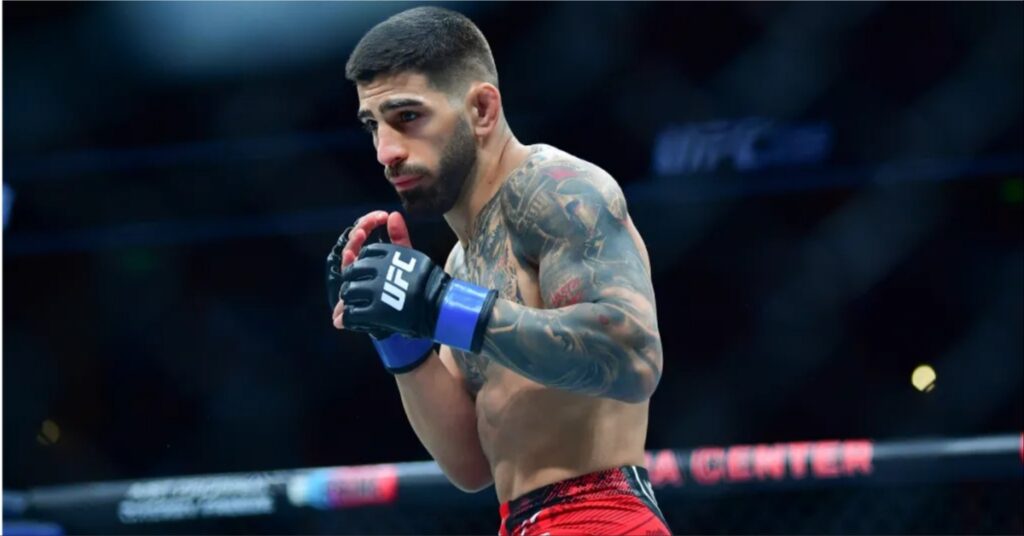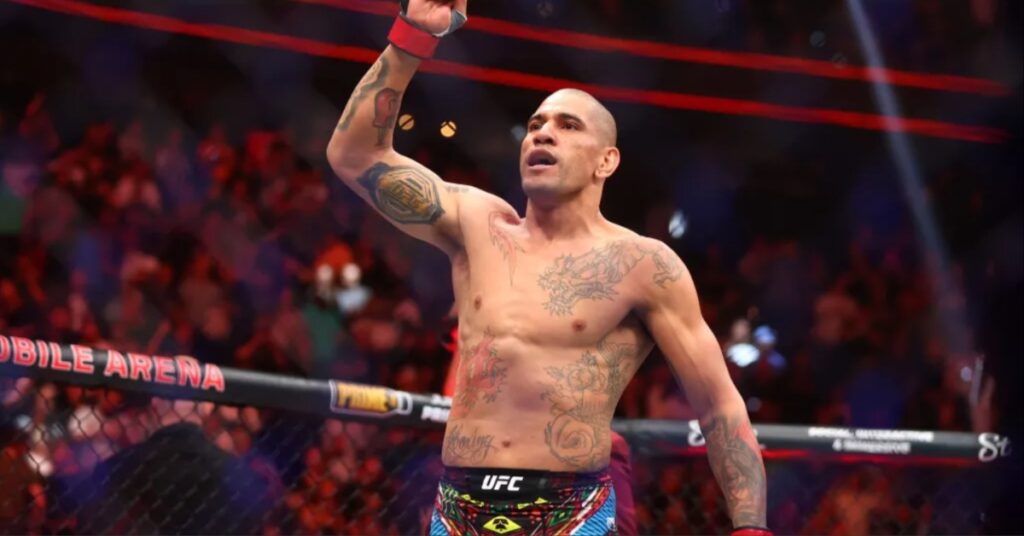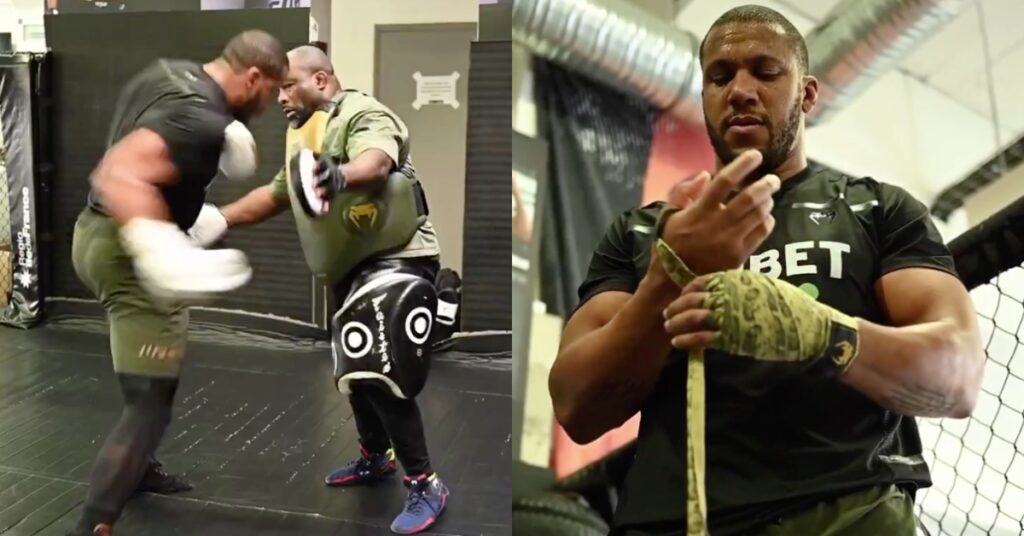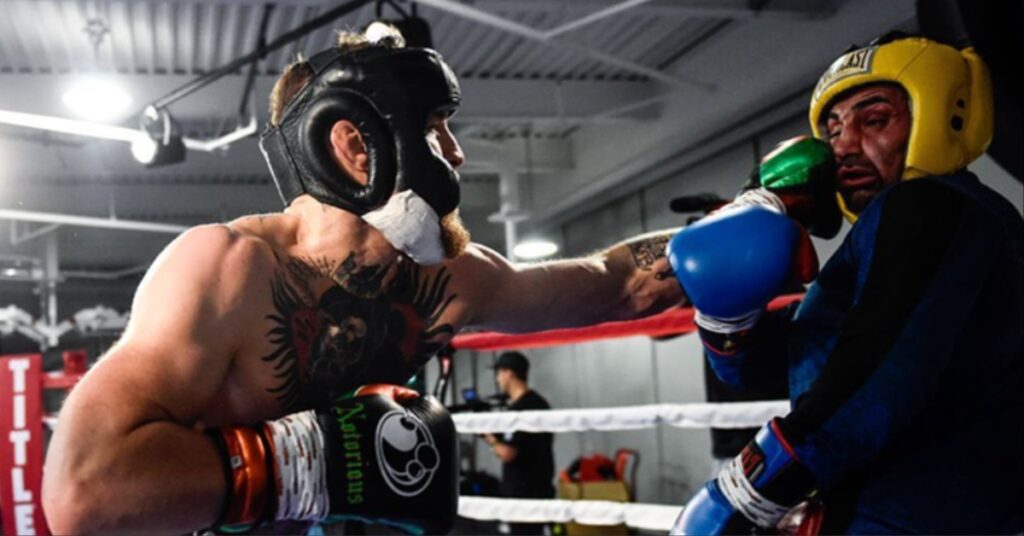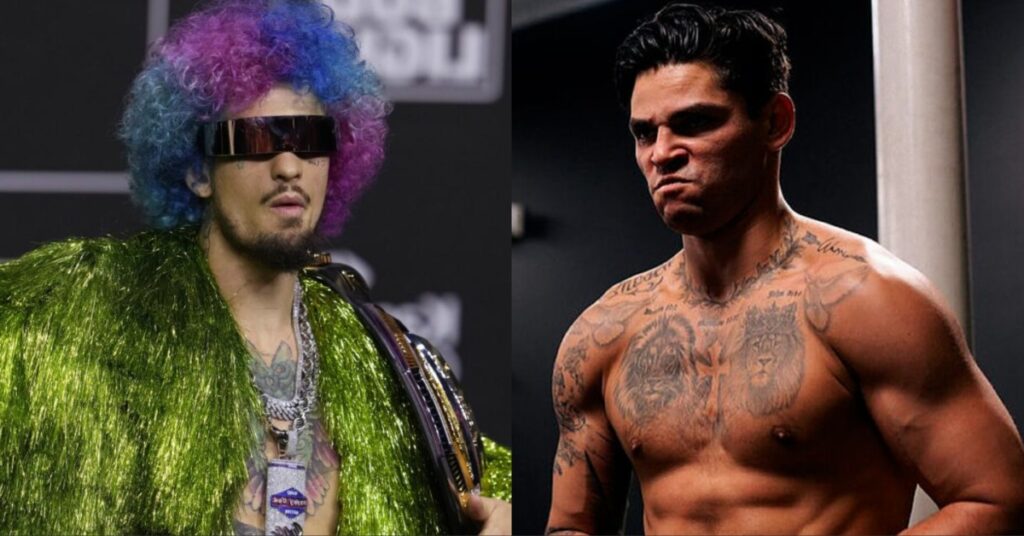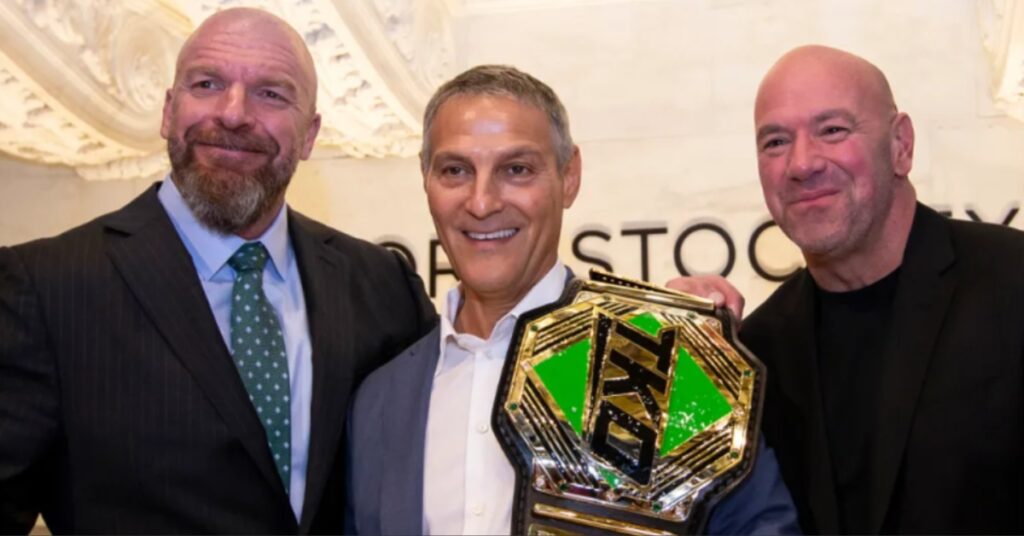Exclusive: Frank Shamrock Discusses His Lifetime of Fighting, And the Healing Process of Writing ‘Uncaged’
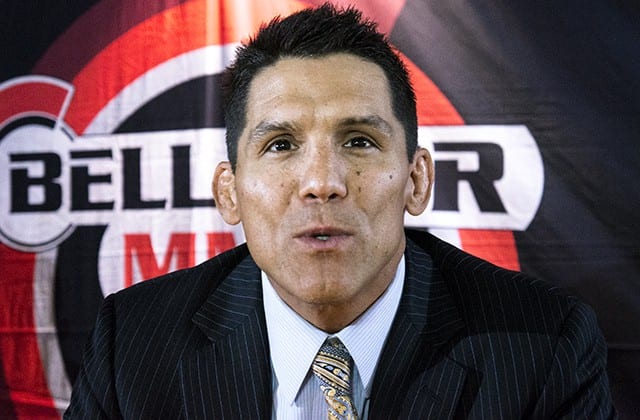

(Order it on Amazon.com right here.)
By Brian J. D’Souza
With his fight career behind him, and the MMA promotion that he helped build heading towards disintegration, Frank Shamrock has reached a reflective moment in his life. Armed with the perspective from years of struggle, Shamrock has poured his thoughts into an autobiography published last week, Uncaged: My Life as a Champion MMA Fighter. In this revealing interview with CagePotato.com, “The Legend” discusses his formative years, the experiences that carved his mind and body into fighting shape, and the massive labor of love that resulted in his book. Enjoy…
CAGEPOTATO.COM: How are you doing?
FRANK SHAMROCK: I am slightly jet-lagged and my spine is killing me.
You just came back from ‘Glory 2’ in Brussels? Did you enjoy the fights?
Yeah, it was awesome, totally awesome. I’ve never called kickboxing, but I liked it. They [Glory] have a serious shot there. They have really good production people involved, the distribution seems to be pretty solid for the plan. Everybody just seemed to be on top of the world. It was pretty cool.
I read your book — in one sitting, because it was so riveting. It touched on a lot of personal issues, a lot of sensitive things [child abuse, molestation, incarceration, alcoholism] that we almost never hear fighters talk about. How tough was it to write this book?
It was pretty tough — not the sharing part, but just the learning part. There was a lot of stuff that I didn’t know about myself during the book writing part. It was healing and it was challenging. I think it was more healing than anything.
How long did it take to bring this project to completion?
It took four-and-a-half years. We started with an outline — I always knew I’d write this book — but it was an outline about four-and-a-half years ago. My story is my story, it didn’t change, it just kept growing. I wrote the skeleton down and got it going, and as soon as I found a writer [Charles Fleming], which took me a couple years, then it took me a year to sell him on the project. It took a long time to get people to realize what the depth of the work would be.
You’ve campaigned against bullying, in particular through your organization Stand Together. What about situations where there’s an institution that protects an abuser, like Penn State and Jerry Sandusky? What do you think can be done better to protect people?
Besides going back to public execution? I don’t know. I think people need to be honest. This is one of the reasons that I wrote the book — I want to give people courage that it’s okay to be real and honest and if something happens to you, man, one of the worst things in the world is to carry a secret around. It hurts everybody.
It seems like when people try and stand up for themselves, like in Middle Eastern countries where if women file a police report for [sexual] assault, they’re the ones who are going to get arrested. It seems like the victim gets punished a lot of times.
Yeah, it’s true. We’re blessed in this country that we have a judicial system that will step up and take care of these things. A lot of people don’t. And there’s a lot of fear in this country, a well — the stigma of abuse and molestation and rape — there’s all these fears that people run away from. That’s the reason it continues to happen. People don’t talk about it, people don’t stand up. And we can.
In a cage, there’s rules, there’s officials. In prison, you could have gotten killed. It’s eight on one in one situation. The story in your book about where your television time gets taken away because eight guys want to watch In Living Color. Did you think about backing down [from fighting them], because there’s eight guys and just one of you — or would that have just set you up for more conflict in prison?
That would have set me up to be — you name it. That would have been a life-changing experience had I not stood up to those men. The odds of them killing me were fairly high, but I knew what I was fighting for. In those types of places, you don’t back down or you’re done. And I was not done, by any means. It’s the same with bullies. When you’re 12 years old, if you don’t stand up for that kid, you’re going to feel like that for the next 20 years. You need to stand up for what you believe in, for yourself and protect yourself. And that’s an extreme situation — fighting eight men over television, it had nothing to do with the television. It had to do with respect. If I hadn’t have stood up, those 2,000 men [in the prison] wouldn’t have respected me and would have turned on me.
A lot of people seemed to have turned their backs on you, or they actively stood in your way. Like Bob and Ken Shamrock saying you didn’t have what it takes to be champion. How painful was it personally to hear that negativity? Did it make you doubt yourself?
It definitely made me doubt myself. I turned it into a positive. I used it as a driving force. They [Bob and Ken] were the people I loved the most in the world, and they told me “You can’t really do it. We don’t think you can do it.” I turned it into something that motivated me and gave me energy. When I look back on it, they were two men who earnestly believed “He’s too nice. He’s too nice of a person.” They didn’t understand that you can be a nice guy, and be a killer. You just got to train for it. When I got older, I thought “Well, I can’t hold it against them for that,” because it gave me the drive to go do it.
A lot of people said the same thing about Georges St-Pierre, that he was too nice, he wasn’t vicious, but fighting is actually a skill that you condition yourself to do. What do you think your big strength was as a mixed martial artist? It seemed that you trained completely different than Ken.
My strength was, I could always figure out a way to win — mentally, physically and technically. Because my mind was so hardened from the life I had, because of the things I experienced in my life, I was ready to go fight for my life. I’ve been there, it was scary, but it was a fear I faced so much, it didn’t seem that crazy.
What kinds of things did kickboxer Maurice Smith show you or work on together?
On the stand-up, I just didn’t “get it” until Maurice came along. Ken [Shamrock] was the brawler, and everybody he brought in was either a boxer or like an American above-the-waist kickboxer guy. It wasn’t until Maurice came along, and he had a very simple system about a clock and angles, and all this made sense. And he was really personal, he was a brother that I needed at the time. We gelled in that way. But it just made sense, and it never made sense with anybody before. And when you added conditioning and training, to have the gas to do it, it was just so effective.
What exactly gave you the conditioning to train for two hours and not get tired?
It was a combination of making my vascular system as strong as it could be, which [previously], I had no understanding of — no understanding that your heart pumping and the blood flowing is what really gives you the energy and the gas to go. So once I’d figured that out, and I had a vascular system that was really, really strong, that plus my understanding of the technique, to where I wasn’t wasting energy, wasn’t doing anything that wasn’t in line with my body’s natural mechanics, once I got those two things together — the cardio and the body mechanics idea, it’s like I had endless energy because I didn’t take the same amount of effort. I could just do anything — literally, anything with my body.
I read in an interview way back that Japanese fans used to ask you to kick them?
Yeah, of course. Very common — kick ‘em, punch ‘em, choke them unconscious, and they wanted you to blast them. And they would be deeply hurt if you didn’t. In the beginning, we punched them in the head, that kind of stuff. We’d knock them out with it, we’re fighters, “Bam! There you go,” like trying to help a fan out. And then we realized, it wasn’t helping them. They were getting smashed. So we started kicking them in the legs, punching them in the shoulders, and stuff like that. And they wanted it — they would say, “You don’t respect me because you didn’t hit me hard.” They wanted a piece of it, a piece of the experience.
Did you have any interesting stalker-type fans?
I never had the stalker fans. I had a lot of ladies who would pursue me around. The ones who made me uncomfortable would be the married ones who would have a few drinks and get really close to me; rub up on me in uncomfortable ways, that was a little bit different.
There were a couple of times after your UFC championship run in the late ’90s when the promotion made you an offer to come back. One time was after the Cesar Gracie fight in 2006, correct?
Yes.
What were you offered at that point? What did you have to give up in exchange?
I was offered what everyone else was offered at the top, at the time. I would have had to given up my exclusivity and control of my brand, and that was something I never believed in.
Are we talking about your likeness rights, video game rights…
Everything.
…foreign sales, sponsorships?
They want everything…Randy Couture was still going strong, the thing was, ‘You’ll get the same [money] as Randy and everyone else.’
That could have been you at the epicenter of the MMA world, taking the UFC middleweight title. Was it hard to turn down something like that?
No. I mean, it was hard the first time [in 1999] when I retired to get out of my contract and be a free agent. But once I was free, I started to realize what was going on, and how much these guys were taking and how much it was becoming a chance that you might win it all, because of the factors coming into play. I wasn’t into the chance. I wanted to create something wonderful, do some amazing things, and then ride off into the sunset.
You love fighting, this is probably one of the things you love most in the world. It must have been hard to walk away from.
Yeah, it was hard. But the other thing is, my body is done. I didn’t have a choice, it was ending for me anyway. I was told when I was 16 that I’d never play contact sports, that I was going to be in pain for the rest of my life, and I had terrible scoliosis and I had to wear this crazy brace. I was like, “Yeah? I am going to be a world champion fighter and we’ll talk about it later.” And that’s what I did. I don’t believe in the normal. I believe you can do whatever you want. And my time is done with fighting; my body said “No.”
There was an incident, where you were with [UFC president] Dana White as his personal trainer for two weeks. When was that?
I think that was right after they bought it, so 2001? They had just bought [the UFC], they were so new.
You were training Dana White, he’s doing some jiu-jitsu and a female grappler is trying to help him out and you mention an incident [in your book] where White is “overpowering her and grinding her to the mat.”
I taught him to do balance and control, move his body. I had a really good jiu-jitsu girl help him — one of the top in the world at the time. Granted, he did the technique perfectly. He ground her to the ground using balance and control. But to me, there was something inappropriate about what was going on, in that he was trying to grind, he was trying to smash this girl who was trying to help him. It just didn’t make sense to me. I could never see myself doing that. I just realized then, we were creatures of different cloths.
You’ve been the subject of controversy in the past where you were talking about an anti-bullying campaign, and then [UFC fighter] Mike Swick came out, and he was a little upset because of how you trained at AKA together. You did some things to toughen him up, and he still carried this. Then you tweeted to Dana White, ‘I watched you beat up a girl and celebrate.’ Was this the incident that this was referring to?
Yeah, that was. And poor Mike [Swick], god bless him. He’s the nicest kid. He used to write me letters from when he was in Afghanistan, or Iraq, or wherever he was. I brought him in and trained him, set him on a good career path. It was really sad to see him do that in search of an opportunity. It was really sad to see him go outside of himself and do what wasn’t honest.
We’re seeing a lot of revisionist history. There’s a lot of bonus money being floated around, there’s all kinds of incentives [offered by Zuffa] to play along. The flipside is that it kind of weakens the soul. It’s kind of tough to swallow sometimes. A lot of guys have just become sycophants. Obviously, you see that.
All the time. I never sold myself, man. I believed in who I am, what I am, and what I stand for. I won’t trade that, and I won’t see something wrong happening and not stand up it because it’s not who I am. That’s not how Bob Shamrock raised me. I see the way the industry is going, and I see the way Dana White is the biggest star, and leading the charge with F-bombs and bigotry — it breaks my heart to see something so beautiful, this sport, treated that way.
Nick Diaz tested positive for weed after his fight with Carlos Condit. What was your reaction?
My thought was, ‘Wow, that’s pretty silly.’ It’s not professional, of course. I don’t know, to me it all seems silly. If you can’t control yourself, and stick to the rules, you’re not going to make it. Guy’s got all the talent in the world, but you’ve got to be functional. I disagree with them saying it enhances your performance. Does smoking weed enhance your performance? I don’t know, but it’s against the rules.
Have you thought about doing jiu-jitsu tournaments, or something else competitive [besides fighting] that’s physical?
No, absolutely not. I can, some days, barely get up. I have to have two fusions on my spine. So I do nothing physical, except for hiking and stepping down off a plane with my bag. And carrying my daughter, who currently weighs 40.5 pounds, which is a lot of weight.
Frank, is there anything else you wanted to say about your book, or in general?
It’s tough for people to separate what they see on camera and that image from the person that I am. I think the book will give people great insight, not only into who I am, but what a human being can do if they really set their mind to it. And that’s one of the reasons that I wrote the book.
Follow Frank on Facebook.com/FrankShamrock, and on Twitter @frankshamrock.

